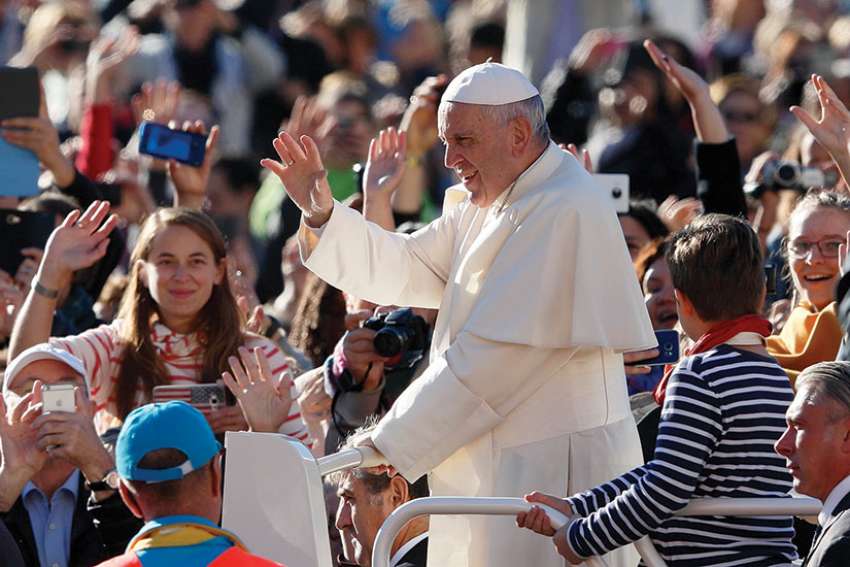Visiting Egypt to show solidarity with persecuted Middle East Christians on April 28-29, speaking at a peace conference, distinguishing between mainstream Muslims and violent Islamic extremists and attempting to mend religious differences all send powerful messages. The Pope knows this.
But terrorists also know the power of messages and targeting the pontiff would be high on the list of many. The Islamic State terrorist organization has levelled repeated threats to the Pope and the Vatican.
What is somewhat baffling, perhaps even reckless, is the Pope requesting a “normal car” — not an armoured vehicle — be used when he is driven from one venue to another in Egypt. In the past, Francis has likened bullet-proof vehicles to “sardine cans” that prevent him from engaging with ordinary people. No security force can ensure 100 per cent safety along every inch of every route.
And before and after Mass Saturday at a Cairo stadium, Francis is expected to use a “golf cart” instead of a so-called Popemobile to make the rounds through the crowds. The image of a suicide bomber getting close to the Pope is not beyond the realm, although Egyptian military authorities will presumably be searching everyone entering the stadium.
Vatican spokesman Greg Burke played down concerns earlier this week. “Security is an issue everywhere, not just in Egypt. Are we worried? I wouldn’t use the word ‘worry.’ The security measures are similar to many trips. The Egyptians obviously want everything to go well,” he told reporters.
The Pope’s visit comes at a time of grave fears and anxieties within Egypt’s Christian community of less than 10 per cent of the country’s 92 million people.
On April 18, gunmen attacked security forces at a checkpoint near the famous sixth-century St. Catherine’s Monastery in the Sinai desert, killing a police officer and injuring three others. The Islamic State claimed responsibility.
This came just days after the April 9 Palm Sunday attacks at two separate Egyptian churches by suicide bombers that killed 45 people. In December, a bombing at Cairo’s main Coptic cathedral killed at least 25 Christians and wounded dozens more. The list goes on and on of Christian persecution across the Middle East, not just in Egypt.
It is admirable the Pope is going with a message of peace and tolerance. He is expected to distinguish between the violent terrorism of groups like the Islamic State from mainstream Islam.
But it begs the question: Why not make as many security precautions for the Pope as possible when in a cauldron of terrorist activity?
Perhaps the explanation comes directly from Francis during an evening prayer service April 22 honouring Christians killed under Nazism, communism, dictatorships and terrorism.
“These teach us that with the force of love and with meekness one can fight arrogance, violence and war, and that with patience peace is possible,” the Pope said in his homily.
Setting aside his text, Francis told the story of a Muslim man once married to a Christian woman. The Pope met the man in a refugee camp in Lesbos, Greece, in 2016, the Catholic News Service reported.
The man told the Pope of terrorists coming to his home. They saw his wife’s crucifix and ordered her to throw it to the ground. She refused and they slit her throat.
“Now it’s that man, a Muslim, who carries this cross of pain,” said the Pope, before praying: “O Lord, make us worthy witnesses of your Gospel and your love; pour out your mercy on humanity; renew your Church; protect persecuted Christians; and quickly grant the whole world peace.”
By shunning armoured vehicles and getting up close with people, many of whom would be persecuted Christians, Francis certainly practices what he preaches in how best to battle violence and terrorism.
Still, I find it difficult to agree with shunning the armoured vehicle. It feels like a needless risk. If something were to happen, his message of peace would be muted by the victory cries of terrorists.
(Brehl is a writer in Port Credit, Ont., and can be reached at bob@abc2.ca, or @bbrehl on Twitter.)

